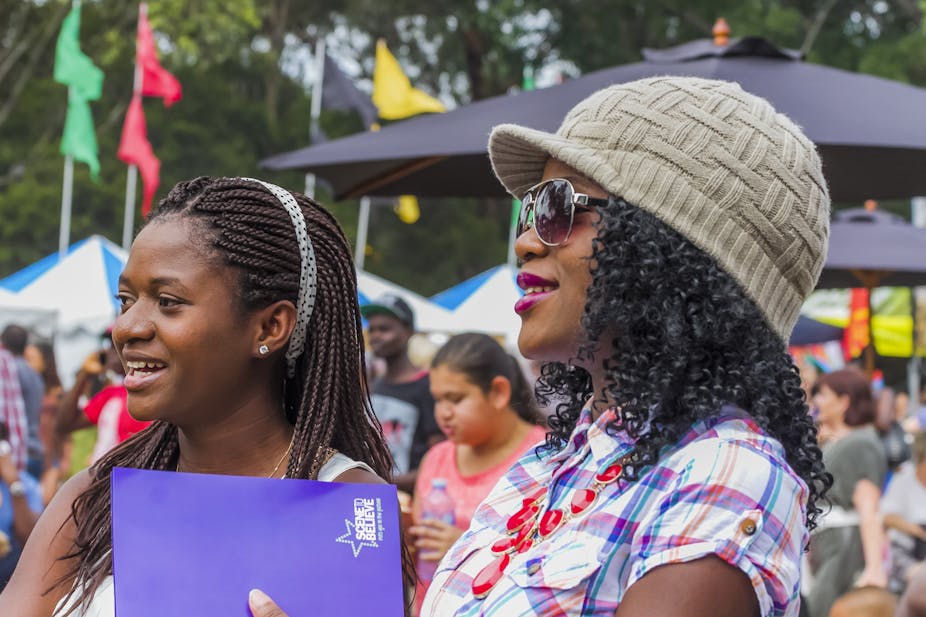Recent debates about freedom of expression in Australia have largely neglected the ethnic minority media sector. These debates came to a head in the lead-up to the federal government’s recent decision to abandon its weakening of Section 18C of the Racial Discrimination Act.
Some are refusing to give up the fight for the amendments. Family First senator Bob Day plans to introduce a private member’s bill to amend the legislation and some Liberals are still voicing their support for the changes.
Those in favour of amending the act have argued for the importance of freedom of speech. Attorney-general George Brandis infamously declared that people have “a right to be bigots”.
What has been missing from the debate is any sustained discussion of ethnic minority media. A simplistic notion of “free speech” has often been bandied about as a catch-all justification for weakening racial discrimination laws. Had the nature of media itself, including inherent inequalities in terms of power and access, entered the debate, a more subtle argument might have emerged.
Marginalised voices need to be heard
Freedom of expression means little if it is not accompanied by a serious focus on the obligations and responsibilities of those in positions of power and influence, particularly those in the mainstream media. This includes the obligation to understand others and to recognise their right to be heard. This applies particularly to those who are marginalised from mainstream public debates.
Freedom of speech is no guarantee that those without access to the tools of public communication will have their voices heard, recognised or acknowledged.
One of the central functions of the Racial Discrimination Act, then, is that it goes some way to evening the playing field. It offers institutionalised protections to those whose voices are often silenced – in particular, ethnic minorities.
The act is a necessity for those who are often demonised in the mass media, but who lack the ability to respond.
Australia’s Human Rights Commissioner Tim Wilson reconfirmed his stance on Section 18c at a free speech conference in Sydney on August 7. He has previously justified his stance by arguing that with greater freedom of expression comes greater debate. This makes it more likely, so the argument goes, that racism and bigotry will be shouted down by a chorus of opposition voices.
Free speech advocates ignore unequal access
Such an approach assumes open and fair public debate, in which we all enjoy equal access to the central mechanisms of public communication: the mass media. For ethnic minorities this is demonstrably not the case.
Studies have shown that ethnic minorities are under-represented in Australian media content and media organisations. Not only do minorities enjoy less screen time, they are also absent from the processes of news production.
My research indicates that young African-Australian media producers, presenters and journalists find it hard to break into the mainstream media. Like other ethnic minority groups, African-Australians also lament the fact that they are seldom contacted when African issues or events are discussed in the mainstream press.

This situation has motivated Australia’s ethnic minority media producers to tell their own stories. Yet ethnic media outlets are under-funded, under-resourced and rely on the hard work and dedication of volunteers.
They also exist at the margins of the media landscape in Australia. Despite our multicultural make-up, Australian media outlets are still highly concentrated in the hands of a few.
The importance of legal protections against racism and bigotry was recently highlighted when the government sought to cut funding to community and, by default, ethnic minority media.
The National Ethnic and Multicultural Broadcasters Council protested strongly against both the potential cuts to media funding and the proposed weakening of Section 18C. The council argued that any weakening of the Racial Discrimination Act would “water down the existing protections” and provide a “broad exemption for ‘public discussion’”.
In other words, expressions of racism and bigotry could be hidden under the auspices of public debate. The Racial Discrimination Act became known as the “Bolt laws” in media circles after a court found conservative columnist Andrew Bolt contravened Section 18C. This now infamous case led to battlelines being drawn in the mainstream media.
Until such public debate is carried out in a more balanced and equal media landscape, acts that guard against bigotry will be needed. For ethnic minority media the right to be understood, as well as the right to free speech, is vital.

